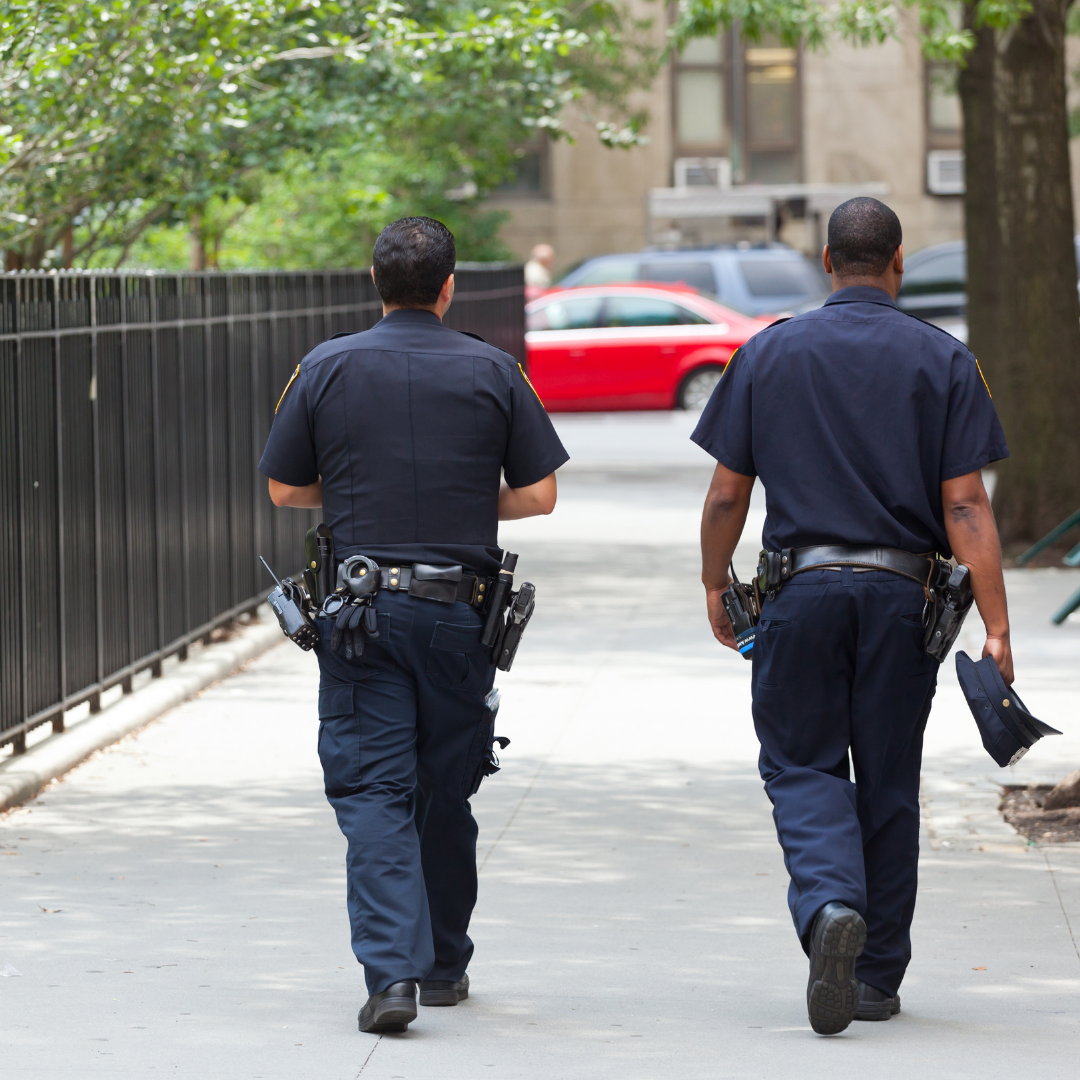
Supporting First Responders
Beyond CISD, CISM, CIRT
"In my experience working in this field for several decades, I am often asked how to make people more resilient in the face of adversity. While millions are invested in research to get to the bottom of this each year, leaders need to keep in mind that those who are impacted need support. As we continue to invest in research, let’s ensure a balanced approach and invest equally toward supporting those who serve our country and communities daily and who struggle with Operational Stress Injuries and other effects of hardship, trauma and adversity.”
— Stéphane Grenier, MHI Founder, Retired Lieutenant Colonel, Canadian Military
Serving with bravery, healing with support.
“This program demonstrates the organization has put money to their words. Having a Peer Support Program is a clear demonstration that the organization cares.”
— Angela Slobodian, Acting Director of Wellness, Ottawa Police Service”
The Intersection Between CIR/CISD and Peer Support
In the past ten years, we've worked with several clients in the first responder industry who thought that peer support is the same as critical incident response (CIR). Although CIR is essentially a type of intervention that involves peers helping one another, it's important to realize that peer support and CIR are two separate but complementary processes.
Consider peer support as a viable and complementary means of supporting first responders well after an incident has taken place.
In addition to the critical incident response, peer support can provide first responders with a confidential, safe space to share when they need it most, on their own time, outside of a formal setting.
Peer Support Skills Training
Each 12-hour day of training includes eight hours of facilitated discussions with four additional hours of reading assignments.
Day 1
Welcome to Peer Support
Introduction to Peer Support
Peer Support and Critical Incident Response
Day 2
Mental Health Foundations
Promoting Wellness
Communicating Empathetically
Creating Psychological Safety
Day 3
Peer Support Skills
Empowering Change
Maintaining Boundaries
Meet Our Lead Facilitators
Our Peer Support Skills Training for First Responders is facilitated by two retired police officers who have experience coordinating peer support programs.
Lynne Turnbull
Retired Staff Sergeant, Ottawa Police Service; Member of The Order of Merit for Police (M.O.M.)
-
Lynne leads the delivery of peer support training to law enforcement and first responder organizations, in addition to a series of customized training courses for various police services and government agencies.
Her expertise comes from having served as an instructor, facilitator, and Manager of the Professional Development Centre at the police learning centre for several years, which included delivering Peer Support and R2MR Training to Ottawa Police members and managers.
Nate Stahle
Retired Front Line Officer, London Police Service; Drug Squad, I.C.E., R.O.P.E., C.I.S.O. - Lvl V U.C.
-
Nate recently retired from a 30-year career as a front-line police officer, during which he helped create and coordinate a peer support program from the ground up.
Nate is also very familiar with adversity and grief through his experience with the loss of a friend and co-worker who died by suicide due to severe PTSD. When a peer support team was being created within his department, he naturally felt drawn to it. Nate was honoured when he was chosen to run the peer support team, as this was a chance to connect with and help even more individuals.
95% of participants said that the training met or exceeded their expectations as they better understood how to support a peer in crisis.
What First Responders Are Saying
Police Services Peer Support Community of Practice
We have launched an initiative to bring together peer supporters from various Police Services into a specially designed Peer Support Community of Practice facilitated by former police officers with decades of experience in law enforcement and peer support.
This is a members-only forum that provides participants with an opportunity to further develop peer support skills, learn new ways of supporting colleagues and exchange best practices in this evolving field.
First Responder Peer Support Programs
The First Responder Support Program (FRPSP) is a specialized outsourced solution to virtually manage your employee volunteers, ready to help others struggling with a mental health or life challenge. Balancing the science, the evidence, the wisdom, and the experience gathered over the years ensures that our programs are built on a solid foundation, are sustainable, and, most importantly, are meaningful, relevant, and trusted by the very people they intend to support.
The power of formalized peer support in the workplace is endless. Our clients have experienced:
Decreased WSIB claims
Improved organizational culture: increasing mental health advocacy and decreasing stigma
Accelerated EAP / EFAP use
Increased access to professional care
Reduced sick leave
Increased employee morale
The First Responder People Support Program (FRPSP) will help your organization meet the National Standard for Psychological Health and Safety. For organizations that administer their own programs, MHI can support by providing any one of the components above, each aligned with the National Guidelines and Standards of Practice.
A designated MHI Program Manager who has previous experience as a First Responder would be responsible for supervising the program and ensuring efficient service delivery.
WeCARE™ eLearning
Cultivating a Caring Culture Among First Responders
First responders routinely encounter intense, high-pressure situations that can impact their mental well-being. While most organizations provide a debriefing following an incident, we all know by now that recovery is a journey that can take a great deal of time. It is, therefore, crucial for organizations to develop and sustain a supportive environment by ensuring that everyone on the team can lean in and support over the long haul.
WeCARE isn't just another program – it's a movement toward ensuring every member of the team feels understood, supported, and empowered.
Whether you're looking to enhance existing support structures or introduce a new peer support program, WeCARE is a foundational step, cultivating an internal culture where first responders actively recognize, engage with, and support colleagues in times of mental and emotional distress.











